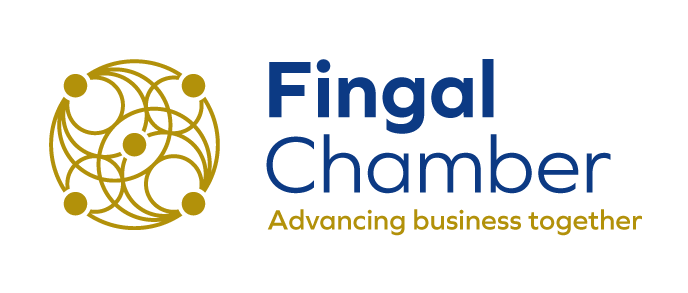Employee Engagement the Top Priority for Irish Organisations
The data from Adare’s recent HR Barometer Series 8.2 reveal that the top priorities for Irish Organisations heading into 2025 centre around enhancing Employee engagement and experience (51%), retaining talent (48%), and strengthening talent acquisition (25%).
The numbers reflect the competitive labour market that Irish Organisations are operating in and highlight how Employers are responding by adopting a more strategic approach to Employee engagement and communication.
Organisations that prioritise strategic HR initiatives which focus on Employee well-being, clear career pathways, and the development of a supportive and transparent workplace culture will put themselves in a stronger position to enhance Employee engagement levels, productivity, and retention rates.
What is Employee Engagement?
Employee engagement is a measure of how enthusiastic and involved Employees feel in their workplaces. Organisations that incorporate Employee feedback into workplace operations for example are more likely to have a more engaged workforce. Alternatively, if Employees have no control or influence over their work or their work environment, they are less likely to feel connected to their workplace and are more likely to experience burnout. Engaged Employees are more productive, enjoy greater job satisfaction and contribute to greater overall workplace morale. Organisations that focus on fostering Employee engagement are therefore likely to experience better business outcomes.
How to Foster Employee Engagement
1. Promote Work-Life Balance
One of the most effective ways to boost Employee engagement is to promote work-life balance initiatives. In the modern fast-paced work environment, Employees are exposed to the risk of work-related stress and may need support maintaining an appropriate level of work-life balance. Employees experiencing stress or burnout out are more likely to leave their jobs. Promoting a workplace culture that values work-life balance can therefore significantly improve Employee satisfaction and retention rates. Organisations should examine what work-life balance initiatives would be most appropriate for their operations and monitor the impact on job satisfaction and retention rates.
2. Clear Career Pathways
Employees who feel stagnant in their roles are more likely to look for opportunities elsewhere. Career development pathways that provide clear opportunities for advancement are a powerful tool in a retention strategy. Employees who have career goals that are aligned with their Organisation’s growth plans are more likely to make long-term commitments. HR strategies in this area can include collaborating with Employees on the development of individualised career development plans or developing opportunities for learning, mentorship, and skill-building. High-potential Employees might benefit from seeing a clear pathway into a leadership role. This approach ensures that the Organisation has a strong leadership pipeline, and that talented
Employees see a long-term career pathway. Organisations should also examine the feasibility of investing in continuous learning and development. Employees who receive support towards their professional growth through upskilling and reskilling are more likely to remain with their Organisation, reducing turnover related to career dissatisfaction.
3. Develop a Supportive and Transparent Workplace Culture
Employees who feel well-informed and involved in their Organisation's direction are more likely to feel a sense of ownership and connection to their Employer. To develop a more supportive and transparent workplace culture, Organisations could consider holding regular company-wide meetings where members of the leadership team share recent business updates, performance metrics, future growth plans and importantly how Employees can contribute and benefit from achieving the stated goals. These meetings should be a two-way conversation where Employees have an opportunity to ask questions and provide feedback. In larger Organisations, it may be necessary to rely on Employee surveys. Employee surveys help to identify current needs, concerns, and satisfaction levels. An Employee survey is only effective if management take action to respond to any trends in the survey data. This is a vital step to demonstrate that leadership is actively listening and responding to Employee concerns. Organisations that provide transparent career pathways to promotions, pay rises, or alternative roles within the business are likely to have Employees who fully understand how they can develop their career by moving up or across. Committing to transparent communication helps to build trust between management and Employees. Employees who feel informed and heard are also more likely to remain engaged in the long-term which will help to reduce turnover rates.
Focus on Employee Engagement to Boost Retention
Improving Employee retention rates by focusing on engagement requires a comprehensive HR strategy that creates a workplace where Employees feel valued, supported, and motivated to contribute in the long-term.
Ultimately, an engaged workforce leads to lower turnover, higher productivity, and a more resilient and successful Organisation. Business leaders should continuously review and refine their engagement strategies to meet the evolving needs of their Employees and any changes to the workplace or operations.
Businesses aiming for long-term success must adopt a strategic mindset around their HR activity. HR professionals must be equipped to think strategically, use data effectively, and continuously innovate to meet the changing needs of the business and its workforce. This strategic approach to HR will contribute to building an engaged, resilient, and agile workforce that is capable of achieving sustained long-term success.
Adare is a team of expert-led Employment Law, Industrial Relations and best practice Human Resource Management consultants. If your Organisation needs advice, support, or guidance about compliance requirements or any HR issues, please contact Adare by calling (01) 561 3594 or emailing info@adarehrm.ie to learn what services are available to support your business.
